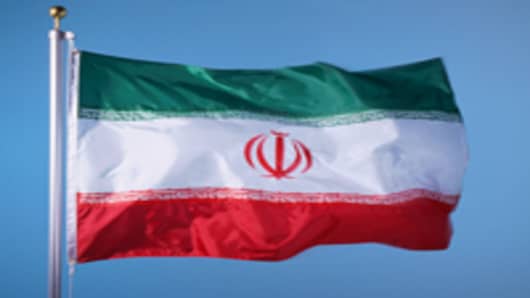Social cohesion and trust in a country’s currency are intrinsically linked, according to Dylan Grice from the strategy team at Societe Generale who is warning that history is ‘replete’ with great disorders in which social cohesion has been undermined by the debasement of a currency.
While not driven by printing money, a currency crisis in Iranhas been grabbing the headlines over the last 48 hours, giving a real time example of the impact of a loss of trust in money.
A 40 percent fall in the value of the Iranian Rial has led to rioting on the streets of Tehran and seen Iranian people and investors race to get their money into hard currency. Protestors branded President Mahmoud Ahmadinejad a “traitor” while others set up camp outside the country’s central bank demanding its Governor step down.
According to the Reuters news agency, the Iranian authorities’ response was to arrest or shut down money changers in Tehran. The Rial has fallen sharply as United Nations sanctions limited Iran’s ability to sell oil on global markets and raise the foreign exchange needed to defend its currency.
Shops across Tehran were shut in protest, with traders in Tehran’s sprawling bazaar showing their anger at the collapse of the currency. The government blamed U.S.-led sanctions.
“I think the Iranian government deserves responsibility for what is going on inside Iran. And that is who should be held accountable. I think they have made their own government decisions having nothing to do with the sanctions that have had an impact on the economic conditions inside the country," said U.S. Secretary of State Hillary Clinton.
For Grice the collapse of a currency means a collapse in people’s trust in the economic system and its key agents.
“At its most fundamental level, economic activity is no more than an exchange between strangers. It depends, therefore, on a degree of trust between strangers. Since money is the agent of exchange, it is the agent of trust,” he said in a research report this week.
And while it has been Iran’s nuclear program and the subsequent UN sanctions that have seen trust eroded in the Iranian regime, in the world’s biggest economies, the risk to social cohesion is the explosion of credit and money printing, according to Grice.
“History is replete with Great Disorders in which social cohesion has been undermined by currency debasements. The multi-decade credit inflation can now be seen to have had similarly corrosive effects. Yet central banks continue down the same route. The writing is on the wall. Further debasement of money will cause further debasement of society. I fear a great disorder,” Grice wrote in a note outlining why he is so worried about central bank policy and its cheerleaders.
Likening the printing of money to a stealth tax that erodes people’s spending power without anyone being able to place the blame for their loss of purchasing power, Grice said people need to blame someone.
“No one knows upon whom the burden falls. People notice only that they can’t afford the things they used to be able to afford, or they can’t afford the things which everyone else can afford.”
“They know that something is wrong, but they just don’t know what, why, or who is to blame. So inevitably they look for someone to blame”
Grice believes that the cost of currency debasement falls on those who do not benefit from the debasement when it occurs and believes people are finally waking up to this fact.
“Central banks provided cheap money to banks, the cheap money artificially inflated asset prices, artificially inflated asset prices made anyone connected to those assets rich as we became a nation of speculators, those riches were achieved at everyone else’s expense, and everyone else has now realized what has happened and is understandable enraged,” said Grice who believes we are now locked in a blame game.
“The 99 percent blame the 1 percent, the 1 percent blame the 47 percent, the private sector blames the public sector, the public sector returns the sentiment, the young blame the old, everyone blame the rich yet few question the ideas behind government or central banks.”
“I’d feel a whole lot better if central banks stopped playing games with money. But I can’t see that happening anytime soon. The ECB has thrown the towel in, following the [Swiss National Bank] last year in committing effectively to print unlimited amounts of money for the greater good. The [Bank of England] and the Fed have long since made a virtue of what was once considered a necessity, with what was once the unconventional conventional.”



